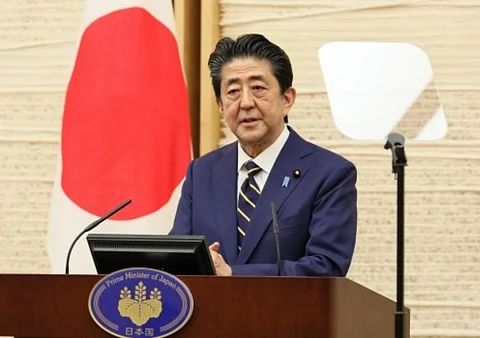

Japanese Prime Minister Shinzo Abe resigns as Japan's Prime Minister, reports news agency Reuters.
"I have decided to step down from the post of the prime minister," he told a press conference, adding that he was suffering from a recurrence of the ulcerative colitis that has plagued him for many years.
Speculation about Abe's possible resignation due to poor health had been brought to a head in recent days after he had two unspecified medical checks in hospital.
Abe, a right-wing conservative, came to power for a second time in 2012. Previous to that, he served as prime minister from 2006 to 2007, resigning after just one year. He also cited health reasons that time, but his resignation came after a series of scandals in his Cabinet and a huge election loss for his ruling party.
On Monday, he beat the record for the longest consecutive period in office set by his own great uncle, Eisaku Sato.
Abe, however, has recently seen his popularity fall to one of the lowest levels of his tenure.
Some of the discontent arises from Abe's management of the response to the coronavirus pandemic, with many feeling that he has prioritized the economy over health and shown a lack of leadership.
The arrest of a former justice minister and his wife, also a politician, on suspicion of vote-buying has also dealt a blow to Abe's ratings.
His trademark policy of "Abenomics," which advocates bold monetary easing and fiscal spending, has hit obstacles amid falling exports due to the US-China trade war. The pandemic has also affected the economy badly, with Japan experiencing a third straight quarter of declines.
Abe was also known for his intention to revise Japan's pacifist constitution, something that worried many Japanese, who credited the charter with bringing about the post-war period decades of peace. Suspicions that he advocated a certain militarism were also bolstered by his 2013 visit to Tokyo's Yasukuni Shrine, a memorial to Japan's war dead, with hundreds of convicted war criminals among those commemorated.
In later years, he did not visit the controversial shrine in person but sent ritual offerings instead.